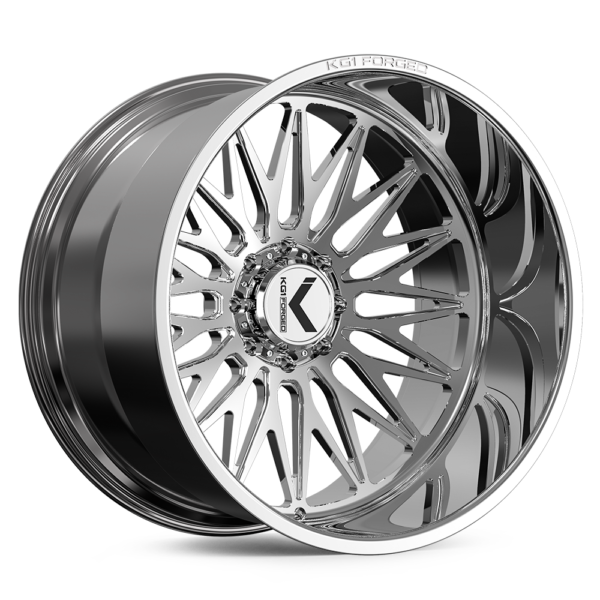
Truck/SUV Forged Wheels
FREE Mount, Balance & TPMS Sensors When You Order at Least 4 Wheels & 4 Tires
FREE Mount, Balance & TPMS Sensors
When You Order at Least 4 Wheels & 4 Tires
Loading products...

KG1 Forged
KG1 Forged SEISMIC - Concave Series
- Sale price
- $3,100.50
- Regular price
- $3,445.00
JTX Forged
JTX Forged Widow Phantom
- Sale price
- $4,626.00
- Regular price
- $5,140.00
JTX Forged
JTX Forged Paradigm Single
- Sale price
- $3,207.60
- Regular price
- $3,564.00

Hostile Forged
Hostile Forged HF05 ATOMIC 6 Lug & 8 Lug
- Price
- From $2,966.40

Hostile Forged
Hostile Forged HF02 SUPERBEAST 6 Lug & 8 Lug
- Price
- From $2,966.40

Hostile Forged
Hostile Forged HF04 PUNISHER 6 Lug & 8 Lug
- Price
- From $2,966.40
Hostile Forged
Hostile Forged HF19 FREEDOM 6 Lug & 8 Lug
- Price
- From $2,966.40
Hostile Forged
Hostile Forged HF18 THRONE 6 Lug & 8 Lug
- Price
- From $2,966.40
Hostile Forged
Hostile Forged HF17 TRIDENT 6 Lug & 8 Lug
- Price
- From $2,966.40
Hostile Forged
Hostile Forged HF16 BANDSAW 6 Lug & 8 Lug
- Price
- From $2,966.40
Hostile Forged
Hostile Forged HF15 PHANTOM 6 Lug & 8 Lug
- Price
- From $2,966.40
Hostile Forged
Hostile Forged HF127 TITAN 6 Lug & 8 Lug
- Price
- From $2,966.40
Hostile Forged
Hostile Forged HF116 JIGSAW 6 Lug & 8 Lug
- Price
- From $2,966.40
Hostile Forged
Hostile Forged HF108 SPROCKET 6 Lug & 8 Lug
- Price
- From $2,966.40
Hostile Forged
Hostile Forged HF08 SAVAGE 6 Lug & 8 Lug
- Price
- From $2,966.40
Hostile Forged
Hostile Forged HF07 TOMAHAWK 6 Lug & 8 Lug
- Price
- From $2,966.40
Hostile Forged
Hostile Forged HF21 TWIST 6 Lug & 8 Lug
- Price
- From $2,966.40
Forgiato
Forgiato TRIMESTRE-M SUV Wheels with Floater Caps
- Price
- From $7,486.20
American Force Wheels
N54 IMPERIAL SS
- Sale price
- $2,851.20
- Regular price
- $3,168.00
American Force Wheels
N55 TALON SS
- Sale price
- $2,851.20
- Regular price
- $3,168.00
American Force Wheels
CKH49 JOLT CC
- Sale price
- $3,877.20
- Regular price
- $4,308.00
American Force Wheels
CKH50 INTREPID CC
- Sale price
- $3,877.20
- Regular price
- $4,308.00
KG1 Forged
KG1 Forged STELLA - Concave Series
- Sale price
- $3,100.50
- Regular price
- $3,445.00
What are the benefits of buying aftermarket wheels for my vehicle?
Aftermarket wheels can enhance the appearance, performance, and handling of your vehicle. Lightweight wheels improve acceleration and braking, while larger wheels can give your vehicle a more aggressive look. Custom options also allow for personal style and performance needs, whether for daily driving or off-roading
Do aftermarket wheels affect fuel efficiency?
Yes, aftermarket wheels can affect fuel efficiency. Larger or heavier wheels can increase rolling resistance, leading to reduced fuel economy. On the other hand, lighter wheels (typically forged aluminum) can improve fuel efficiency by reducing the overall weight of the vehicle
How do I choose the right size aftermarket wheels?
The size of your aftermarket wheels should match your vehicle’s needs and driving style. Most vehicles come with recommended wheel sizes, and you should avoid going too large or small. Consider the wheel diameter, width, and offset to ensure proper fitment. Tools like online fitment guides can help you choose the right size
What’s the difference between cast and forged wheels?
Cast wheels are made by pouring molten aluminum into a mold and are generally more affordable but heavier. Forged wheels are made by compressing solid aluminum into shape, making them stronger, lighter, and more durable, though they are more expensive. Forged wheels are preferred for performance and off-road applications
Will aftermarket wheels affect my ride comfort?
Aftermarket wheels can impact ride comfort, especially if you choose larger wheels with low-profile tires. Larger wheels may result in a harsher ride, as there is less cushioning between the road and the vehicle. Sticking with appropriately sized tires for your new wheels can help maintain comfort
- Choosing a selection results in a full page refresh.
!






























































